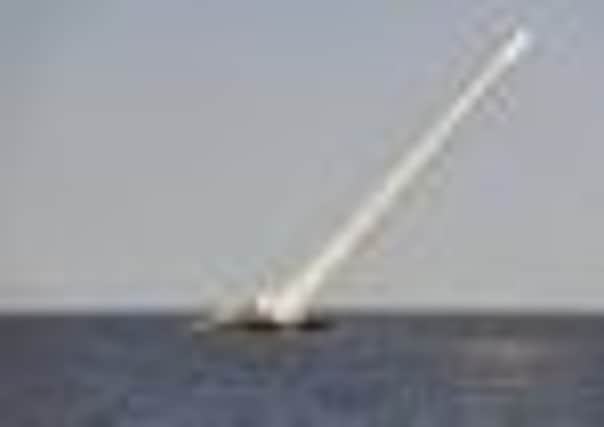Missile tests up the ante as Iran and West play nuclear brinkmanship


Tensions have soared since draconian European Union and US sanctions, targeting Iran’s vital oil exports, went fully into effect in recent days, aimed at curbing its nuclear ambitions.
Yesterday’s belligerent posturing from both sides came as technical experts from Iran and six world powers, including the US, met in Istanbul for the latest round of nuclear negotiations.
Advertisement
Hide AdAdvertisement
Hide AdThree earlier bouts of talks since April failed to make a breakthrough. They were bedevilled by mutual mistrust and demands that the other side made the first concession in a bad-tempered, high-stakes game of nuclear brinkmanship.


Even so, neither Iran nor the West wants to call a halt on diplomacy, because it could lead to a catastrophic Israeli strike on Iran’s nuclear facilities that would send oil prices soaring and convince Tehran it needs the bomb.
General Hossein Salami, the acting commander of Iran’s Revolutionary Guards, proclaimed the “Great Prophet 7” missile war games in a central desert area were intended to warn Israel and the US of the folly of attacking Iran.
Israel repeatedly has threatened it could attack Iran if diplomacy fails to rein in its nuclear programme, and the US also has military force on the table as a last resort. But Washington has urged Tel Aviv to give sanctions and diplomacy a chance.
The chief of the Revolutionary Guards airspace unit, General Ami Ali Hajizadeh, warned on Monday that if Israel dared to attack Iran’s nuclear facilities, it would give Tehran a reason to “remove Israel from the Earth”.


He also boasted that Iran has produced an anti-radar missile called “Arm” that could damage US-supplied missile shields in Gulf Arab countries and Turkey.
Washington matched Iran’s bellicose rhetoric with gusto, while both sides insisted their military measures were purely “defensive” in nature.
If Iranian “fast boats” attempt to harass US warships or commercial shipping in the Strait of Hormuz, “we’ll put them on the bottom of the Gulf”, an unnamed US defence department official said.
Advertisement
Hide AdAdvertisement
Hide AdThe US navy has doubled the number of its minesweepers in the region to eight vessels, while extra warplanes have been deployed to regional bases.
Iranian hardliners are urging their regime to close the Strait of Hormuz at the mouth of the Gulf as “legitimate leverage” against “bullying by the West and its allies”.
One-fifth of the world’s traded oil passes through the strait and Washington repeatedly has warned closing that closing it is a red line.
War games and defiant rhetoric are two options for Tehran’s leaders. Another would be for Iran to announce major advances in its nuclear programme.
“But what is significant is that Iran hasn’t cut off the nuclear talks,” said Scott Lucas, an expert on Iranian affairs at Birmingham University.